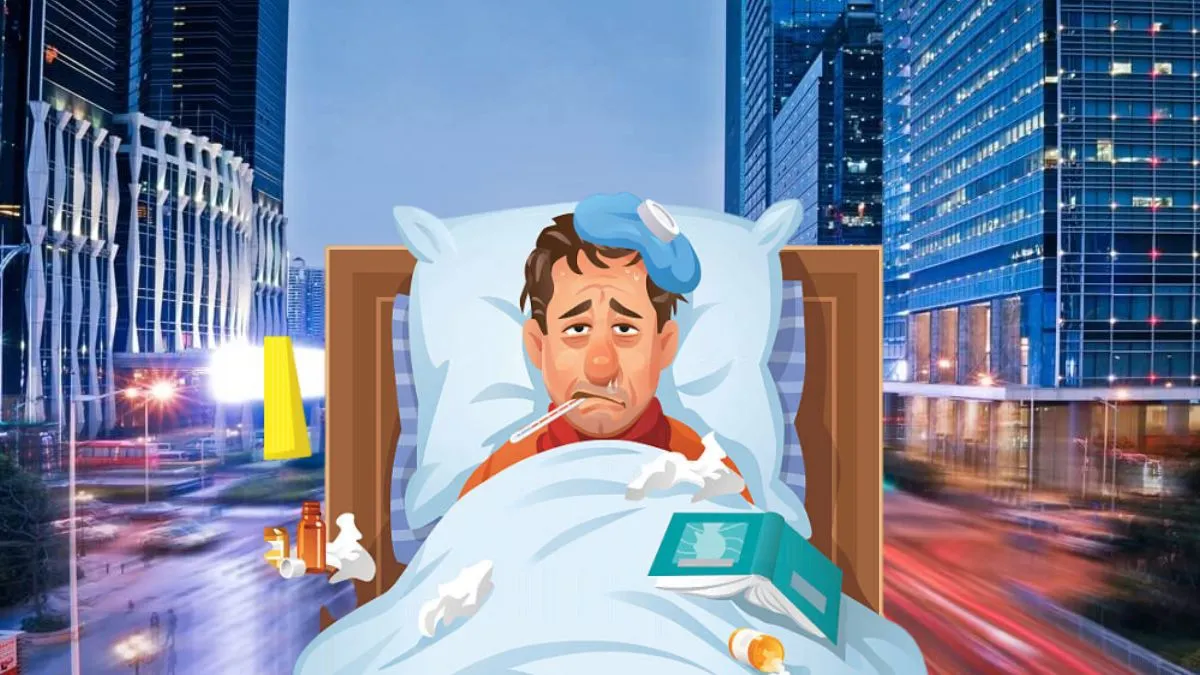
Urban living offers many conveniences and opportunities. However, beneath the surface lie hidden health risks that slowly build over time. In clinics across Indian cities, doctors are noticing a steady rise in adults diagnosed with autoimmune disorders such as rheumatoid arthritis, lupus, thyroid dysfunction, and inflammatory bowel disease. These conditions often begin with vague symptoms like ongoing fatigue, unexplained joint pain, digestive troubles, or rashes, signs that tend to be overlooked.
To know more about this, Dr Siri M Kamath, Consultant Internal Medicine, Gleneagles BGS Hospital, Kengeri, Bengaluru, offered her insights.
Urban Lifestyle and Immune Overreaction![]()
Dr Kamath explains what drives this increase in autoimmune diseases among city dwellers. Sedentary lifestyles, diets loaded with processed foods, and ongoing stress contribute to low-grade inflammation throughout the body. Dr Kamath points out, “Diets rich in processed food and irregular meals increase systemic inflammation, which can prompt the immune system to react excessively.” Some key contributors in urban life include:
- Long work hours coupled with poor or irregular sleep
- High consumption of processed, sugary, and fried foods
- Chronic stress, leading to hormone imbalances such as elevated cortisol
- Limited physical activity, which harms circulation and immune regulation
ALSO READ: Is Keto Diet Gender Biased? Study Shows How Men and Women Respond to Low-Carb Diets Differently
Environmental Factors: Pollution, Chemicals, and Microbes
City air often carries pollutants and tiny particles that irritate the lungs and provoke immune responses. “Air pollution and industrial chemicals are not neutral; they change immune responses and may lead to autoimmunity,” warns Dr Kamath. Furthermore, urban lifestyles limit exposure to diverse microbes found in natural environments. Reduced contact with soil, animals, and plants diminishes microbiome variety. It is a crucial factor for immune balance. Studies have shown that a less varied gut microbiome can make the immune system prone to misfiring, elevating autoimmune risks.
The Gut Microbiome: A Vital Missing Link![]()
The gut microbiome plays a key role in training and modulating the immune system. Research reveals that urban residents often have less diverse gut bacteria compared to rural or tribal populations, which may partially explain the increase in autoimmune diseases in cities. This connection emphasises how lifestyle and environment deeply affect immunity and health.
ALSO READ: Are Plant-Based Diets Effective For Cancer Prevention? Find Out What The Expert Says
Spotting Early Signs of Autoimmune Disorders
Recognising autoimmune disorders early on can be challenging since symptoms often overlap with common complaints. Yet being alert to persistent signs can make a big difference. These include:
- Lingering fatigue that does not improve with rest
- Unexplained joint pain or stiffness
- Digestive irregularities such as bloating or diarrhoea
- Frequent infections or unusual skin rashes
Dr Kamath advises, “If symptoms linger, don’t dismiss them as stress or ageing. Seek medical advice for early tests and guidance.”
Managing Autoimmune Health in the City![autoimmune]()
Treating autoimmune disorders often requires medications to control inflammation, balance hormones, and protect organs. However, daily lifestyle choices are equally important. Dr Kamath recommends:
- Eating whole, unprocessed foods rich in vegetables, fruits, fibre, and healthy fats
- Engaging in regular gentle activities like walking, yoga, swimming, or light resistance exercises to improve circulation and joint strength
- Managing stress through deep breathing exercises, hobbies, or relaxation techniques
- Maintaining a consistent sleep schedule in a quiet and restful environment to support tissue repair and immune balance
A study highlights the “disappearing gut microbiome” phenomenon during urbanisation and its link to rising non-communicable diseases, including autoimmune conditions. The loss of microbial diversity and exposure appear to heighten immune challenges among urban populations.
Practical Steps for Urban Residents
- Prioritise daily movement; even short walks count
- Choose fibre-rich foods to nurture gut bacteria
- Cut back on processed and sugary foods
- Consult healthcare providers if symptoms persist or worsen
ALSO READ: Hot Yoga vs Regular Yoga: Which One Suits Your Lifestyle Better?
Conclusion
Cities bring many advantages but also subtly shape health in significant ways. Understanding how urban life impacts the immune system can empower individuals to act early and wisely. With mindful lifestyle choices and timely medical care, city dwellers can reduce their risk of autoimmune disorders and support lasting health and vitality.
How we keep this article up to date:
We work with experts and keep a close eye on the latest in health and wellness. Whenever there is a new research or helpful information, we update our articles with accurate and useful advice.
Current Version
Oct 18, 2025 20:59 IST
Published By : Vivek Kumar


